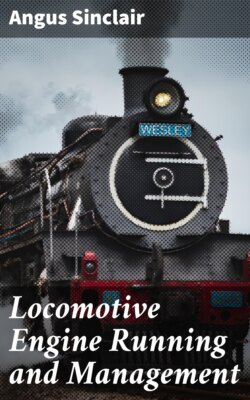Читать книгу Locomotive Engine Running and Management - Angus Sinclair - Страница 55
На сайте Литреса книга снята с продажи.
FIREMAN’S FIRST DUTIES.
ОглавлениеTable of Contents
On most roads, the engineer and fireman are required to be at their engine from fifteen minutes to half an hour before train-time. A good fireman will reach the engine in time to perform his preliminary duties deliberately and well. He will have the dust brushed off from the cab-furnishing, and from the conspicuous parts of the engine, the deck swept clean, the coal watered, and the oil-cans ready for the engineer. His fire is attended to, and its make-up regulated,—the kind of coal used, the train to be pulled, and the character of the road on the start. With an easy or down grade, for a mile or two on the start, the fire does not need to be so well made up as when the start is made on a heavy pull. But every intelligent fireman gets to understand in a few weeks just what kind of a fire is needed. It is the capability of perceiving this and other matters promptly, that distinguishes a good from an indifferent fireman. When a young fireman possesses these “true workman” perceptions, and is of an industrious, aspiring disposition, anxious to become master of his calling, he will prove a reliable help to the engineer; and his careful attention to the work will insure comfort and success on every trip. There must be a certain amount of work done on the engine, to get a train along; and, if the fireman can not do his part efficiently, it will fall upon the engineer, who must get it done somehow.
